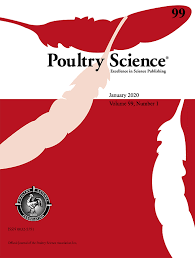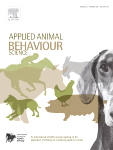Document type: scientific journal available online before publication in Poultry Science
Authors: K. E. Wurtz, M. S. Herskin, A. B. Riber
Preview: Poultry are deprived of water when transported to slaughter, beginning shortly prior to catching of the first bird and lasting through catching and loading, the journey on the vehicle, time spent in lairage, and up until time of death. Our aim was to review existing knowledge on variables which may be useful in determining the length of time that poultry may go without water in connection with transport before their welfare begins to deteriorate. During transport, it is likely that birds experience a motivation to drink, which may transition into the negative emotional state of thirst if water is unavailable. Determining when drinking motivation reaches a threshold where welfare is negatively impacted is challenging. In the absence of water, birds may over time experience dehydration which may be detected through physiological indicators as their body attempts to maintain homeostasis. In poultry, plasma osmolality, arginine vasotocin, and chloride have been suggested as being most suitable for assessing dehydration resulting from periods of water deprivation that correspond with typical transport durations, due to their particular sensitivity during this period. While initial dehydration may not be associated with negative emotional states, it is likely that it eventually leads to discomfort, but additional behavioral and motivational studies are necessary to infer when this begins. Impacts of thermal conditions, genetics, and the condition of the individual bird on the development of a dehydrated state were also assessed, though more information is needed to fully understand these interactions. With the available literature, this review concludes that total transport (i.e., from the initial deprivation from water until time of slaughter) durations of longer than 6 h are likely associated with measurable physiological indicators of dehydration and may potentially be associated with negative emotional states, although more research is needed to clarify this. Current available knowledge and assessment tools are not sufficient to detect the degradation of welfare derived from thirst itself, which should be further examined to protect poultry welfare during transport.
Publication in Poultry World on January 9, 2024: Journeys of over 6 hours without water likely to affect poultry welfare






